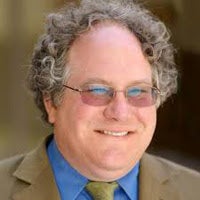Battle for the future of Hong Kong: Are protests a tipping point?
The Hong Kong protests started in June as a response to a contentious extradition bill. After demonstrators took over Hong Kong’s airport earlier this month, Hong Kong residents formed a 20-mile human chain across the city today. The protests are raising questions about Hong Kong’s future and its relationship with mainland China. USC experts explain the origins of the protests and potential outcomes.
Contact: Jenesse Miller, (213) 810-8554 or jenessem@usc.edu
Protests erode the “One Country, Two Systems” model
 “China will resist using military force since it would lead to very serious damage to the credibility of Hong Kong as an international financial center,” said Stanley Rosen, professor of political science at the USC Dornsife College of Letters, Arts and Sciences and an expert in Chinese politics, film and the relationship between China and Hollywood.
“China will resist using military force since it would lead to very serious damage to the credibility of Hong Kong as an international financial center,” said Stanley Rosen, professor of political science at the USC Dornsife College of Letters, Arts and Sciences and an expert in Chinese politics, film and the relationship between China and Hollywood.
“It would almost completely erode the ‘One Country, Two Systems’ model which has led to Hong Kong’s continuing success after the handover in 1997 and was originally intended to be a model for Taiwan.”
He added:
- If China resorts to force, it would increase international fear China is growing as a threat to peace.
- Beijing would be challenged to pacify Hong Kong due to loss of popular support from the city’s citizens, especially youth who have fueled protests.
- While aspects of the British legal system remain, the local government that answers to Beijing, not the people, has eroded those freedoms.
Contact: (213) 740-1697 or rosen@usc.edu
China’s tactics include disinformation via social media
 “China has taken a leaf from the Russian playbook and used not just its national media, but Twitter and Facebook to spread disinformation about the Hong Kong protests; specifically, that they are being fomented by the CIA,” said Gregory Treverton, professor of the practice of international relations and spatial sciences at the Spatial Sciences Institute at the USC Dornsife College of Letters, Arts and Sciences.
“China has taken a leaf from the Russian playbook and used not just its national media, but Twitter and Facebook to spread disinformation about the Hong Kong protests; specifically, that they are being fomented by the CIA,” said Gregory Treverton, professor of the practice of international relations and spatial sciences at the Spatial Sciences Institute at the USC Dornsife College of Letters, Arts and Sciences.
“As someone who has run a U.S. intelligence agency, I know that intelligence is capable of making mistakes, but getting involved with the protests is one the CIA would not make. The counterpart to the adage ‘don’t stop your enemies when they are doing something stupid’ is ‘don’t crush your friends in your embrace.’”
He added:
- China is finding it easier to use social media to thwart democracy than it did using traditional media to advance Communism during the Cold War.
- Fomenting a foreign conspiracy narrative is easy nowadays; all it takes are inexpensive trolls to post content supplemented by automated bots.
- Belatedly, Twitter and Facebook have countered by taking down accounts linked to the Chinese government and its propaganda campaign.
Contact: (310) 393-0411 or treverto@usc.edu
Use of force to quell protests would have deep downside
 “So far, Beijing has succeeded in keeping the limited violence in the protests in the news, playing to popular worries about disorder and keeping the discontent stemming from economic challenges from finding sympathetic ears on the mainland,” said Clayton Dube, director of the USC U.S.-China Institute at the USC Annenberg School for Communication and Journalism.
“So far, Beijing has succeeded in keeping the limited violence in the protests in the news, playing to popular worries about disorder and keeping the discontent stemming from economic challenges from finding sympathetic ears on the mainland,” said Clayton Dube, director of the USC U.S.-China Institute at the USC Annenberg School for Communication and Journalism.
“I don’t think that Beijing will send in troops to quell the protests. Given the slowing of the Chinese economy and the ongoing trade and tech war with the United States, I believe Beijing would consider dramatic action to end demonstrations in Hong Kong as having a deep downside and a limited upside.”
He added:
- Beijing is disappointed in the ability of the Hong Kong government to end the protests, but understands that the costs of a crackdown would be significant.
- People in Hong Kong, accustomed to enjoying civil liberties such as freedom of speech, association and assembly, are eager to defend their rights and press for others they believe were promised.
- Young people in Hong Kong echo complaints of other youths around the world; they are frustrated with economic conditions. Although they are the best educated generation, they don’t see the same opportunities available to previous generations of college graduates.
Contact: (213) 821-4382 or cdube@usc.edu



